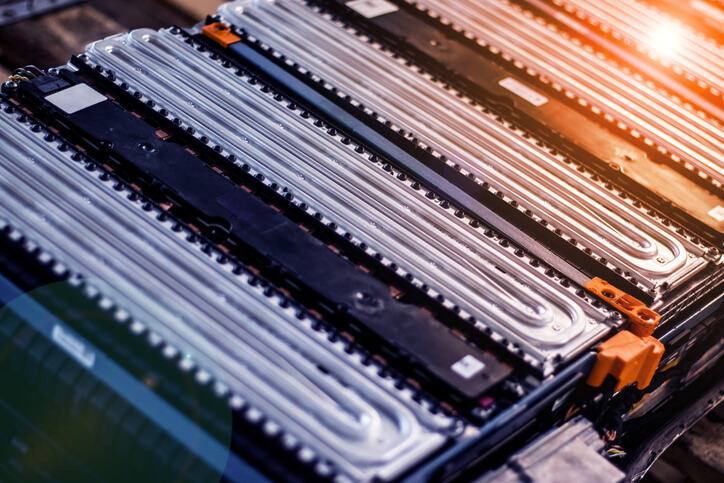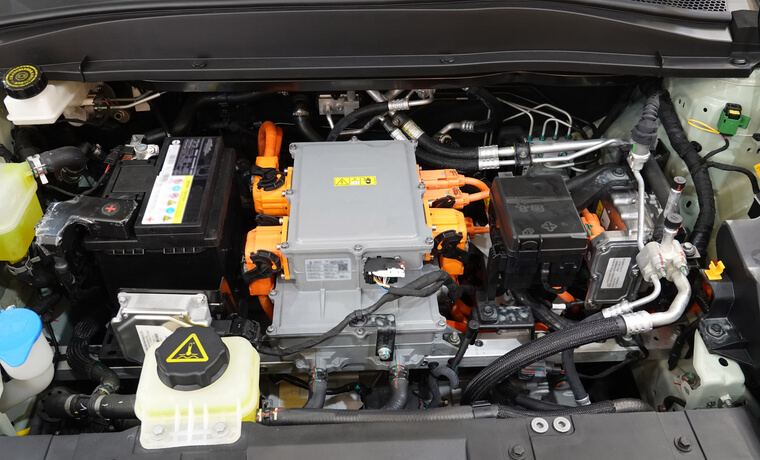Solid-State Batteries: The Next Revolution in EV Technology
From automotive school and beyond, solid-state batteries are often touted as the “next big thing” in electric vehicle (EV) technology, and for good reason. This emerging battery type could dramatically improve EV range, charging times, safety, and longevity. In other words, it addresses many of the limitations of today’s lithium-ion batteries.
In this blog post, we’ll explain what solid-state batteries are and why aspiring mechanics in hybrid technology training programs should be paying close attention to this breakthrough.
What Are Solid-State Batteries?
At its core, a solid-state battery (SSB) is an advanced type of rechargeable battery that uses a solid electrolyte instead of the liquid or gel electrolyte found in conventional lithium-ion cells. In a typical lithium-ion EV battery, the liquid electrolyte carries lithium ions between the anode and cathode. That liquid works but has drawbacks: it can overheat, pose fire risks, and limit how fast the battery can charge or how long it lasts.
A solid-state battery replaces that flammable liquid with a solid material that performs the same ion-carrying function more safely and stably. What does this change mean in practice? For one, removing the liquid means no more “leakage” or combustion risk. It also means batteries can be made more compact. Many SSB designs incorporate a lithium metal anode, which significantly boosts energy storage capacity without increasing size.
This fundamental design shift opens the door to major improvements in performance, as we’ll explore next.

Why They’re a Game-Changer for EVs
As explored in automotive school. Solid-state batteries promise to revolutionize EVs because they directly tackle the biggest concerns drivers (and automakers) have about electric cars: driving range, charging speed, safety, and battery lifespan.
- Greater Driving Range: Solid-state batteries are projected to deliver much higher energy density. Future EVs may travel 700–800 km or more on a single charge, though these figures remain at the prototype stage.
- Faster Charging: Charging times are expected to shrink dramatically. While today’s EVs typically take 30–45 minutes to fast-charge to 80%, early research suggests solid-state batteries could reduce that to as little as 10–15 minutes under ideal conditions.
- Improved Safety: By eliminating flammable liquid electrolytes, solid-state batteries greatly reduce the risk of fires or explosions.
- Higher Power in a Smaller, Lighter Battery: Because of their higher energy density, SSBs can provide the same (or more) power while being lighter and more compact.
- Longer Lifespan: Solid-state batteries are expected to last significantly longer than current EV batteries, potentially well beyond today’s average of 8–10 years, though exact real-world lifespans are still being studied.
These advantages explain why solid-state batteries are heralded as the next revolution in EV technology.

Challenges on the Road to Mainstream Adoption
If solid-state batteries are so great, why aren’t EVs using them already? As hybrid and electric vehicle mechanics discover during training, scaling up production is complex and expensive.
- Materials and Chemistry Challenges: Engineers are still refining the best solid electrolytes and preventing issues like dendrite formation.
- Manufacturing Scale-Up: It’s one thing to make a prototype; it’s another to mass-produce millions of cells reliably.
- Cost: Current solid-state cells are very expensive to produce. Automakers are working to bring costs down to compete with lithium-ion.
Despite these hurdles, progress is rapid. Automakers like Toyota, Volkswagen, and BMW are already investing heavily, with several projecting the first commercial EVs with solid-state batteries by the late 2020s (around 2027–2028).
What It Means for Aspiring Automotive School Graduates
For those pursuing careers as hybrid or EV technicians, the rise of solid-state batteries is a development you’ll want to watch closely. If you plan to become a hybrid and electric vehicle mechanic, you’ll likely encounter vehicles with solid-state batteries in the not-so-distant future.
From a practical standpoint, solid-state batteries may change diagnostic procedures, require new tools, and demand updated safety training. The fundamentals you’ll learn in automotive school remain essential, but being up to speed on cutting-edge EV systems will make you even more valuable to employers.
Are you ready to take your skills to the next level? Enroll in hybrid technology training at ATC Surrey and prepare to become a leader in the future of electric mobility.


